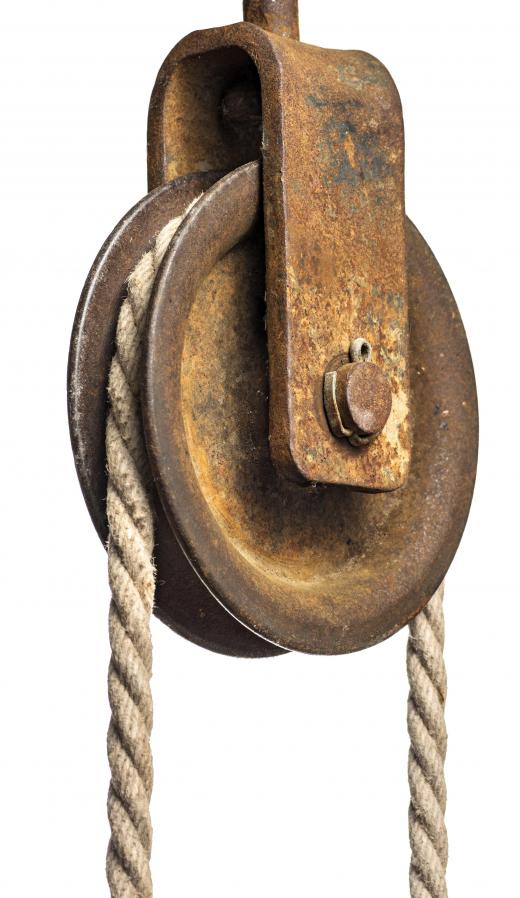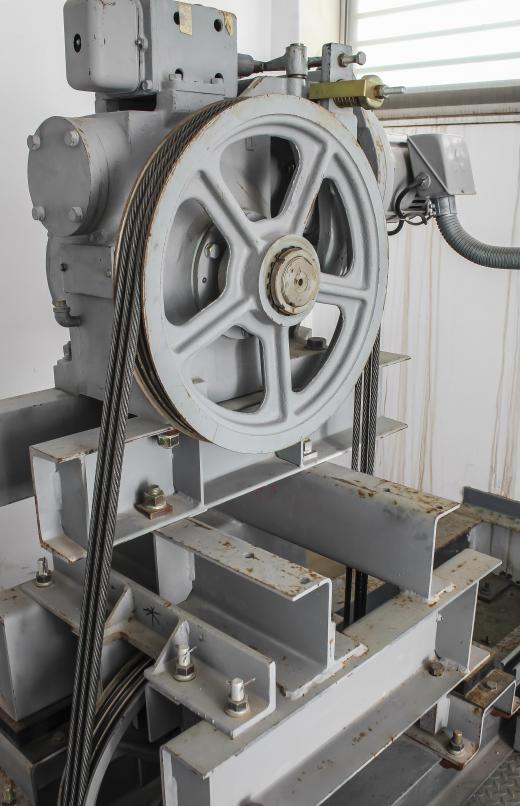A simple pulley is one of the six simple machines that are used by themselves or as components in more complex machines. Unlike complex pulleys, simple pulleys use only one rope, chain, or belt to decrease the amount of work needed to lift or move an object, regardless of the number of pulleys that are used together. These machines are extremely useful for lifting or moving heavy objects. The simple pulley was invented by Archimedes in the 3rd century before the Common Era (B.C.E.) and has been adapted to many different uses, though its design has changed very little in the past few millennia.
A rope, wheel, and axel are the components of a simple pulley. The wheel is attached to the axel, which is the center of the machine and which allows the wheel to spin freely. The rope is then run around the outside of the wheel so that it touches approximately 50% of the wheel's circumference. Most pulleys have an edge with a lip or an outer casing to keep the rope from slipping off.

One end of the rope is attached to an object that needs to be lifted and the other end to a person, animal, or other machine that will apply force to the object by pulling down on the rope. All the pulleys in a system are placed above the object to be lifted, with the lowest pulley directly above the object and the highest pulley at the maximum height to which the object can be lifted. With enough pulleys and a long enough rope, extremely heavy objects can be lifted with ease.

In a simple pulley system, one pulley may be used alone or many of them can be used together. If there are multiple pulleys in a system, they are spaced vertically distant from one another, and the rope is run alternately from a higher pulley to a lower one. A single simple pulley decreases the amount of work needed to move an object by allowing a person to apply force in a downward motion while lifting an object upwards. This action cancels out the force of gravity that is acting on the object, making it easier to lift. Using more than one pulley decreases the amount of force needed to lift an object by one half each time a pulley is added, though twice as much rope is also required.
